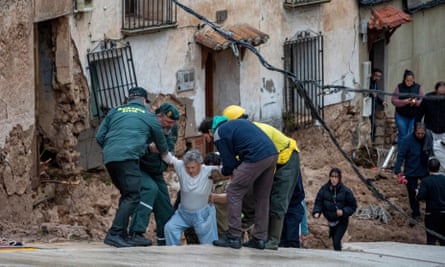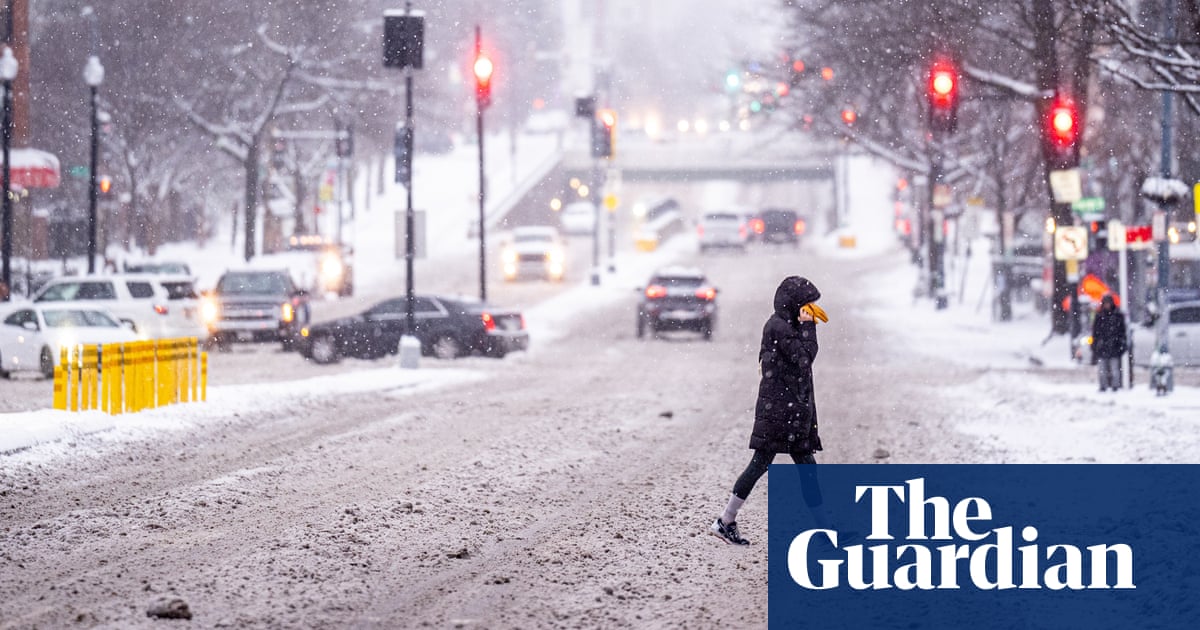At least 51 people are feared to have died after torrential rains hit southern and eastern Spain on Tuesday, bringing flash floods that raged through towns and cut off roads and rail lines.
As the search continued for the missing, people were urged to stay off the roads amid warnings that the number of fatalities could rise.
The Valencian government’s emergency coordination centre said its multiple victims protocol had been activated, adding: “The initial toll logged by different police and emergency services puts the provisional number of victims at 51 people. We are beginning the process of recovering and identifying the victims.”
Speaking on Wednesday morning, Valencia’s regional president said it was still too early to provide a comprehensive death toll.
“These are very difficult hours for relatives and for the disappeared,” said Carlos Mazón. “We will confirm the number of victims over the coming hours but right now it’s impossible to offer a precise figure. We’re in shock.”

The regional government also urged people to stay off flooded or cut-off roads, saying the emergency services needed access and that more flood water could still accumulate.
More than 1,000 soldiers from Spain’s emergency response units were deployed to the devastated areas.
Images on Spanish TV showed turbulent, muddy water surging through the town of Letur in the eastern province of Albacete on Tuesday, dragging cars through its streets.
“Yesterday was the worst day of my life,” Ricardo Gabaldón, the mayor of Utiel, a town in Valencia, told the national broadcaster RTVE. He said several people were still missing in his town.
“We were trapped like rats. Cars and rubbish containers were flowing down the streets. The water was rising to 3 metres,” he said.
Spain has experienced similar autumn storms in recent years, but nothing has compared to the devastation over the past two days.
A high-speed train with nearly 300 people on board derailed near Málaga, although rail authorities said no one was hurt. The high-speed train service between Valencia city and Madrid was interrupted, as were several commuter lines.
Spain’s central government has set up a crisis committee to help coordinate rescue efforts.
“I am closely following with concern the reports on missing persons and the damage caused by the storm in recent hours,” Spain’s prime minister, Pedro Sánchez, wrote on X, urging people to follow the advice of the authorities.
“Be very careful and avoid unnecessary trips,” he added.
It was later announced that Sánchez would chair a crisis meeting on the floods in Madrid at midday and make a statement at 11.30am. Spain’s congress also held a minute’s silence to commemorate the dead.
King Felipe also offered his support to the families of the dead and missing, saying he was “heartbroken” by the news of the flooding and its fatalities.
“I’m sending strength, encouragement and all the necessary support to all those affected,” he said. “We recognise and appreciate all the local and regional authorities and the emergency and security services as they continue with the titanic task they have been carrying out since the very first moment.”
By 10am on Wednesday morning, the rains in Valencia had subsided. But more storms were forecast through Thursday, according to Spain’s national weather service, with the rains forecast to move to the north-east of the Iberian peninsula.
The intense rain has been attributed to a phenomenon known as the gota fría, or “cold drop”, which occurs when cold air moves over the warm waters of the Mediterranean Sea. This creates atmospheric instability, causing warm, saturated air to rise rapidly, leading to the formation of towering cumulonimbus clouds in a matter of hours and dumping heavy rain across eastern parts of Spain.
Scientists say extreme weather such as heatwaves and storms is becoming more intense as a result of the climate crisis.

.png) 2 months ago
18
2 months ago
18













































